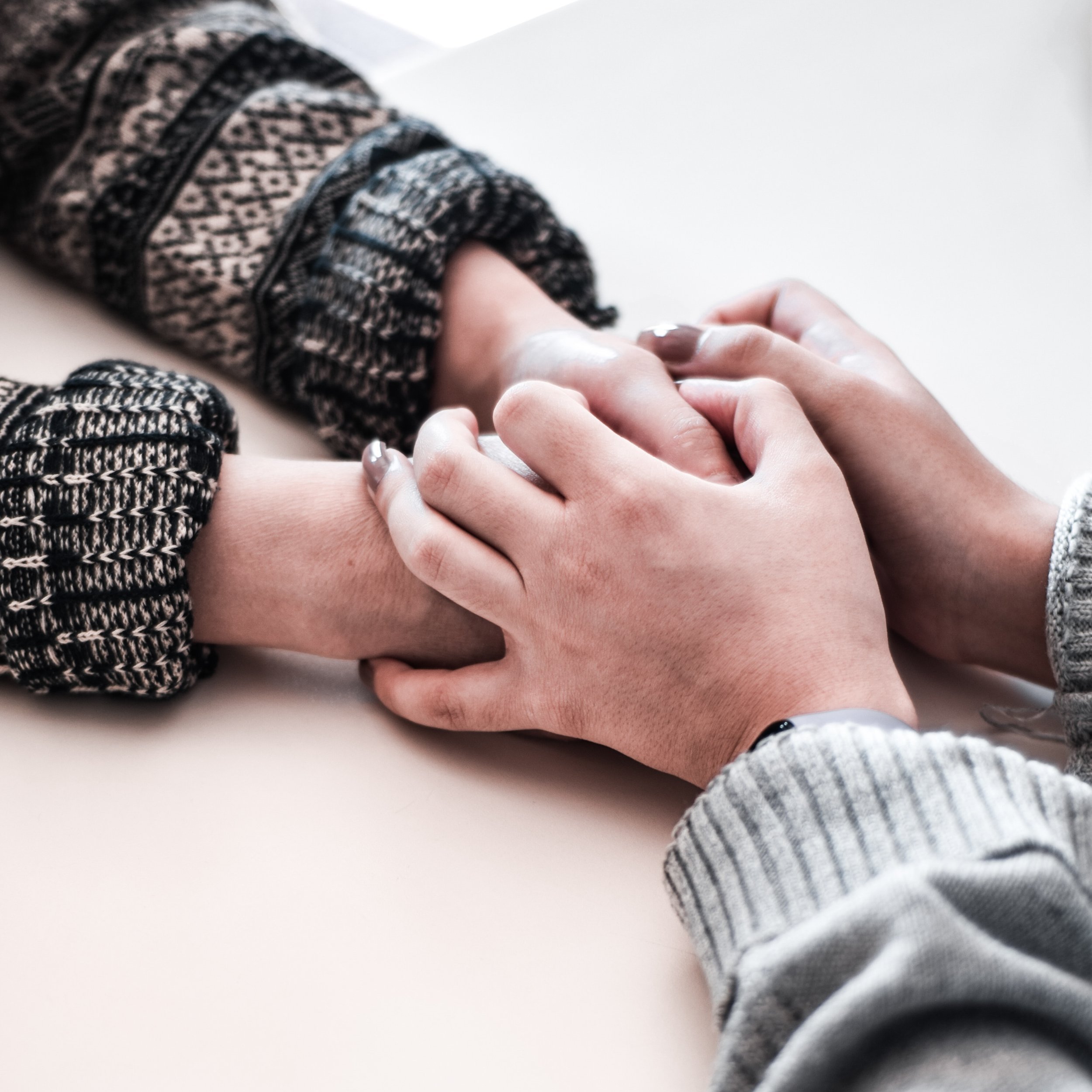
Social Anxiety Therapy
Therapy specializing in social anxiety, shyness, and sensitivity. Located in the San Francisco Bay Area.
Social Anxiety, Shyness, and sensitivity therapy in San francisco Bay area & all of California
What is Social Anxiety and how can Social Anxiety Therapy Help?
Social anxiety is often experienced as intense self-consciousness and a fear of being negatively judged by others. Social anxiety can get in the way of relationships and living the life we want to live causing us to feel lonely and depressed. 15 million adults in America experience social anxiety. So if you are someone who feels or has felt socially anxious, you are not alone! And this type of anxiety is something that can absolutely be alleviated and treated.
Everyone experiences social anxiety differently and to varying degrees. It can be situational, contextual, or a feeling that only gets triggered during certain periods of one's life. Ask yourself, are there certain people, moments or places in which I don't feel that anxious? What do you notice? It can be tempting to place a broad "socially anxious" label that covers our whole life, but it's often more complex than that. The more information you can garner about what contexts and which people support you and which don't, the more you can build on those supportive elements to help you feel more grounded and accepting of yourself in the edgier contexts.
Social anxiety can be caused by a combination of things and events that will vary from person to person. Below I have included a few common influences. See what resonates with you. I believe that the more we understand, the less at odds we are with ourselves, creating room for self-compassion which is truly the most fundamental "medicine" to help heal social anxiety.
Social anxiety and shyness can be related to the Highly Sensitive Person or HSP factor
Did you know that social anxiety is often related to an innate characteristic of high sensitivity to physical and emotional stimulation? It's a trait that 15% to 20% of us share. It is also connected to introversion. And it is absolutely normal! These individuals (me being one) are just more sensitive to feelings and our environment than the majority. Unfortunately, in our culture where having a thick skin and being extroverted is more valued, HSPs tend to have low-self esteem because we receive messages that make us feel we are not ok, that we should "speak up," be more out-going, or not be so affected by things.
But actually, the wonderful thing about being sensitive is that it's probably what helps you be artistic, creative, passionate, discerning, empathetic, existential, spiritual, and to notice those interesting things that most others don't seem to perceive. Being an HSP is a beautiful and even powerful way to be in the world. But since we are a minority we often need help from others to normalize the things we feel so intensely and to learn some tools to help us ground and regulate in a culture that values moving fast and loud. One of my deep loves is to support HSPs in reclaiming and nurturing this so it can shine in the world as their own unique, special power.
Learn more about Sensitivity and take the self quiz by clicking HERE.
Social anxiety can be caused by trauma or painful social experiences
Many socially anxious people have had painful even traumatic social experiences such as bullying, shaming, or marginalizing. No matter how young or old we are when something like this happens, it can leave a very deep impact in our lives. Later on, certain social situations can remind us (consciously or unconsciously) of those painful moments and we might start feeling similar emotions of fear or anxiety just like we did when the original painful event took place.
For example, if we were shamed as a young student in school, we might feel very self-conscious or anxious when we have to attend a workshop as an adult. As we discover the source of our social wounding, we can bring compassionate attention to those parts of us. Being compassionate with ourselves and what we had to go through is the opposite of the rejection we experienced, which creates a reparative and healing alchemy within us. As we develop supportive ways to self-soothe and stay connected with ourselves, we can feel more released from our past wounding to feel safer and more grounded in the present social context. But often times it's hard to bring kind perspective on our own to the parts of us that have been hurt.
We need someone to guide us and hold us emotionally as we gently release and transform our past. In the therapeutic relationship we can receive the acceptance and understanding that we deeply needed during our trauma so that we can eventually incorporate this "medicine" and offer it to ourselves wherever we go in life. With support and our own commitment to self-acceptance and self-care, working through the source of our social anxiety can often lead us to a profound experience of wholeness, empowerment and feeling like our (true)selves again.
An inner critic is often behind social anxiety
“You shouldn’t have…”
"What's wrong with you!?"
"Get it together!"
"You can't!"
"Why even try."
Even as I write sentences I cringe at how demoralizing these words are. Sadly all of us to certain degrees have heard these types of judgments coming from our own inner critic. We tend to internalize or create critical narratives as a way to motivate and improve ourselves. Unfortunately, negative self-talk creates the opposite effect. It triggers anxiety and shame and decreases our motivation and inspiration. We might also find ourselves avoiding the things and situations that the critic berates us for. Avoidance might look like literally avoiding certain activities because the anxiety of doing something "wrong" is too great. Avoidance might also be disguised as procrastination or addictive behaviors (alcohol, TV, internet, phone) or other ways that we might escape or distract the wrath of our inner critic.
People who experience social anxiety often have a strong inner critic. It watches over us very intensely especially in social settings. It can put a lot of pressure on us to not "screw up" and embarrass ourselves or offend anybody. Deep down the inner critic has good intentions. It's trying to help us and protect us. Perhaps the inner critic was born out of a traumatic social experience we once had and it's job is to make sure it never happens again. However, this can come at a high cost. It puts so much pressure on us to be perfect that we are bound to fail. Which serves to trigger a whole new cycle of shame. Given this no wonder we would want to avoid social situations!
Ironically, the inner critic operates under the misguided assumption that pointing out our "flaws" and making sure we are following it's strict social protocol is going to making us feel more open and social. The opposite is true. Imagine the inner critic as a real person whispering its harsh commentary in your ear at a party. Wouldn't that be extremely distracting and anxiety-provoking? It actually creates a fight or flight response within us as if we were under attack. How are we ever supposed to feel grounded and open to connect with others when we dealing with such an invasive downer!
The first step in gaining freedom from your inner critic is bringing awareness to it. If you're feeling anxious, tense, or depressed, take a moment to see what kind of self-talk you are giving yourself. It can be helpful to make the inner critic's voice more explicit by imagining it's talking to you in the second person ("you shouldn't," etc.). You can then acknowledge that the inner critic probably has good intentions deep down, and it's trying to help you and give you a sense of control even though this isn't the best way to go about this. The critic's way is making it harder to get what you need. You can then do some gentle inquiry with yourself to get to the core of your needs and formulate a kinder, more constructive way to address them.
Giving ourselves more permission to be ourselves (awkwardness and all) ironically helps us feel more present and less anxious and more open to connect.
Deconstructing our inner critic's narratives takes practice, just like building a muscle. Sometimes it's hard to notice how the inner critic operates because we are so used to it.
One of the great things about therapy is that we can together gently peel off the critic's oppressive layer to give room for a new, more open and connecting experience with self and other. The more we create space from our inner critic, the more freedom and confidence to be ourselves we'll experience, which in turn inspires natural movement towards the things and people that really matter to us.
Therapy can help heal the causes of your social anxiety and support you in feeling more free to be your true self.
I know because I’ve been on my own journey with social anxiety myself. My own powerful healing and transformation has inspired me to help others who are challenged with this experience.
I am a licensed psychotherapist based in the San Francisco Bay Area who loves supporting individuals in transforming their anxiety into an opportunity for self-discovery, healing and empowerment, so that they can reclaim their authentic voice, purpose, and self-worth. I also specialize in helping clients manage their sensitivity and use it as a gift and a super power in their lives. My approach is compassionate and holistically attuned to your unique history and personality.
If you are struggling with the pain of social anxiety and you are curious about how I can help you, please reach out! I’m happy to connect with you.
I provide therapy via video to residents who live anywhere within California.
You can instantly book a free 15 minute consultation through my online calendar by clicking the button below. I’d love to hear from you!
-Vanessa Wolter
“What you are looking for is already in you...You already are everything you are seeking. ”



